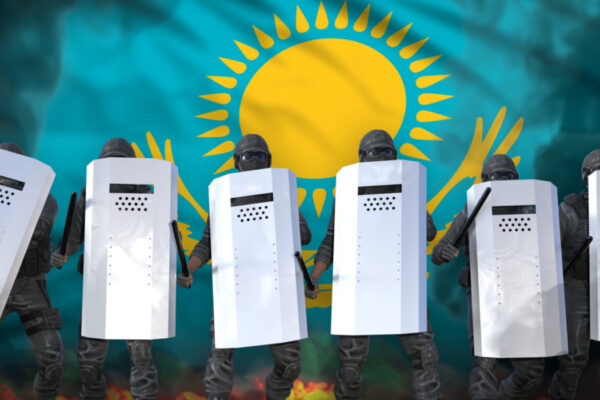After months of anticipation, failed negotiations and broken promises, Russia launched a wide-scale military attack on Ukraine on Thursday, Feb. 24.
Yet questions remain regarding Vladimir Putin’s motivation. Is he concerned about Western influence in neighboring Ukraine raising security concerns at home? Does he want to take over Ukraine? Is he deflecting attention from Russia’s domestic problems?

“Some combination of these is surely part of the answer, but another little-discussed factor is also at work,” James Wertsch wrote in an op-ed published Feb. 23 in the South China Morning Post. Wertsch is the David R. Francis Distinguished Professor and director emeritus of the McDonnell International Scholars Academy at Washington University in St. Louis.
“This is the long-term vision of Putin and his circles for advancing Russia toward its ultimate destiny as the global model of spirituality and strong autocratic rule. This is an old idea to which Putin seems to be applying new muscle.”
According to Wertsch, the idea that Russia is an innocent and pure nation that has repeatedly been victimized by military invasions and the infiltration of alien ideas is engrained in its national narrative. As posed by Russian philosopher Ivan Ilyin (1883-1954) — who Putin regularly quotes and has instructed Russian elites to study — the narrative has provided the metaphysical and moral justification for an authoritarian state of the sort that Putin is now trying to build.
“To be sure, Russia has been attacked many times by others such as Napoleon and Hitler, but the habits of thought that have emerged make it possible for Russia to see external aggression where others see Russian aggression or imperialism,” said Wertsch, who also is a professor of anthropology and of global studies in Arts & Sciences.
This world view is deep-seated throughout Russia and reinforced daily through stories from parents, schools, the church and the media. As the story goes, enemies such as democracy and the rule of law pose a direct threat to Russian purity. The alien enemy invades and nearly destroys Russia, but eventually is repelled by the sacrifice and heroism of Russians, acting alone, Wertsch said.
“It was the tool Putin used in 2008 to justify a massive invasion of Georgia, a small country of 3.5 million, which he viewed as the tip of a NATO spear aimed at the heart of Russia,” Wertsch wrote. “In Georgia then, and in Ukraine today, the existential threat that Putin sees is the model they present of rising democracies that could tempt the Russian population to question their own government.”
The grand idealistic mission Putin sees for Russia is one that triumphs over democracy and encourages the rise of Christian fascism everywhere. It may take decades or even centuries to fulfill, but it provides a backdrop for decisions in the present.
James Wertsch
The role of Christianity
For Westerners, Putin’s use of Christianity to defend Russia is even more puzzling. According to Wertsch, this, too, is an old idea in Russia.
“Most Russians today are very familiar with the notion of Moscow as the ‘Third Rome’ — as formulated by Monk Filofei of Pskov in 1510,” Wertsch wrote. “It is a narrative assertion that after corruption and moral decay caused the downfall of Rome and then Constantinople, Moscow rose to become the center of pure Christianity. This idea comes as a surprise to most Western readers, but that is the point. Without knowing about this narrative and the tenacious hold it has on Russian thinking, we miss the context which holds clues to what Putin wants in Ukraine — and beyond.
“This is not to say that Putin’s actions are wholly driven by Christian fascism. Like any leader, he must also worry about the real, practical world as well. Russians, like people everywhere, are generally less interested in philosophy than in the price of food and rent and how their children will fare in years ahead. An example of his pragmatism was in 2013, when a proposal to raise the pension age sparked protests, and Putin’s popularity took a dive. As prime minister at the time, Putin was clearly calling the shots, and he quickly backed down.
Putin’s true motivation
With this deeper understanding of Russian thinking, Putin’s motivation for attacking Ukraine becomes clearer.
“The grand idealistic mission Putin sees for Russia is one that triumphs over democracy and encourages the rise of Christian fascism everywhere. It may take decades or even centuries to fulfill, but it provides a backdrop for decisions in the present,” Wertsch wrote.
“In the long run, though, we would do well to remember that in Russia, there is an animating grand narrative behind most decisions. Putin did not invent this narrative, and the narrative will not die with him. Whenever we try to predict Russia’s next move, we must try to game it out through a very Russian mindset.”



